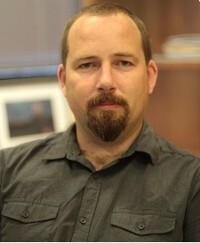Ricky Muir – Wise Words
Senator Ricky Muir writes frankly about leaving school at age 15, and the ‘soul-destroying’ experience of being jobless. He says the idea that ‘young people are lazy’ is a stereotype.

My resume does not read like most politicians. I left school at 15 and moved out of home soon after. It’s the first time I’ve revealed these details in public, and my hope is that my story will highlight how crushing it is to be young and unemployed in Australia.
When I left school in 1996, I was really desperate to find a job. I needed money to put food on the table and pay the rent, or I would have been out on the streets. I applied for many, many entry-level jobs – including abattoir work – near where I lived in Gippsland in country Victoria but I couldn’t catch a break for a long time.
It was soul-destroying. At times, tears were shed. I did not have the financial support of my parents who were facing their own challenges, so I had to rely on Centrelink payments for more than a year.
Although I did land my first job – working in manufacturing in Melbourne – when I was 17, the experience of being a teenager and jobless was a very challenging time in my life. It only takes a couple of knock-backs from jobs to bring your morale down.
I definitely know what it’s like to build your way from nothing. I know the challenges that young people in similar situations today face. In country towns around Australia, it’s especially hard for young people as there isn’t the public transport to even get you to a job interview if you don’t have access to a car – or parents who will drive you.
I want to put it on the record that I completely object to the idea that ‘young people are lazy’. That’s a lazy stereotype and does not fit the young unemployed people I talk to.
Of course, it’s really important to focus on trying hard to find a job but much more than a 'good attitude' is needed these days to land even an entry-level job. I tried hard, but I still found it tough to get work as an early school leaver without work experience, qualifications or personal contacts.
My message to policy makers is to put themselves in the shoes of the young people looking for work.
With youth unemployment soaring – more than a quarter of a million aged 15 to 24 remain unemployed – the big push seems to be for people to go to university. But one size does not fit all. I think that well-structured programs in the community that help jobless youth build transitional skills to get into the workforce are very important for those not suited to higher study. I am not a fan of all work-for-the-dole schemes, either, but I did benefit from one well-run, community-based program that was established when John Howard was Prime Minister.
I’d be the first person to also stick my hand up and say that I’ve had a great opportunity being elected to the Australian Senate. I am now 34 years old, and I did not go to university like most people my age who enter politics.
I have worked my way through a series of manual occupations. The main part of my working life has been in the tannery and timber industries where I worked hard to achieve leading hand, shop steward and supervisory roles. But the businesses where I worked in both industries suffered downturns. So there have been other, shorter periods in my life when I’ve been working as a casual and had my hours cut or I’ve been out of work entirely, which put great strain on my wife and five children.
I remember one time, in my 20s, applying for a job in a florist’s shop to boost our income – I didn’t even score an interview. The growing unemployment problem in Australia was further amplified for me when I was confirmed as a Senator for Victoria but had to wait about nine months to take up the role officially. I ended up not having an ongoing job to fill that gap. I found myself unemployed again, this time in my 30s. The bills didn’t pay themselves and I applied for anything and everything before I got work through a contact at a small timber mill near home.
My life experiences have taught me – the hard way – that unemployment is a big challenge in the community. Young people without work experience, skills or qualifications are particularly hit in tough economic times.
I want to acknowledge the Brotherhood of St Laurence for its campaigning work on this issue: youth unemployment is a local and a national problem that we need to respond to and the Youth Unemployment Monitor they publish serves as a wake-up call to everyone.
We can’t afford as an economy, let alone a society, to crush the hopes of the next generation.
Ricky Muir is a Senator for Victoria. He represents the Australian Motoring Enthusiast Party and took up his seat in July 2014.
This article first appeared in the Brotherhood of St Laurence’s Youth Unemployment Monitor March 2015.